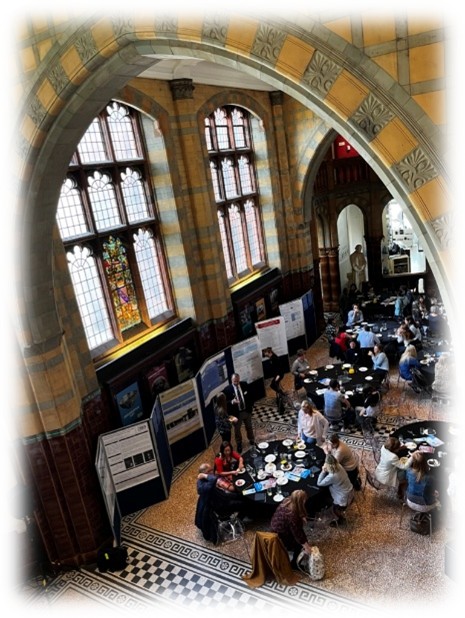Great work has been taking place at Institute in the Park in Liverpool into childhood illnesses. Professor Christian Hedrich sent us this update on an important area of research . We have supported Christian and his collegues work in Liverpool over many years.
Chronic non-bacterial osteomyelitis (CNO) is a rare but very painful bone disease. It is caused by ongoing and long-lasting inflammation of the bones, and most commonly affects children and young people. In addition to severe bone pain, CNO can cause bone swelling, deformities and even bone breaks. However, despite its severity and possible complications, CNO remains difficult to diagnose and treat. There is no specific medical test to confirm it, and no medication has been approved by the NHS (or other regulatory bodies) to treat it.

In 2022, at an international conference on inflammatory bone diseases held in Liverpool, patients with CNO and their families shared their most pressing needs, and agreed research priorities with clinicians and researchers during round-table discussions (Foto). The message shared by patients and families was loud and clear: we need to better understand the causes of CNO so that we can develop effective, targeted treatments that are accessible to all patients with CNO.
Scientists from the University of Liverpool and Alder Hey Children’s Hospital listened and responded to this call. Working with partners in the USA and Germany they discovered errors in the blueprints (genes) for a protein called P2X7 that regulates inflammation. In a study involving 191 children and young people with CNO and >1800 health controls, researchers discovered gene variants affecting P2X7 function in up to 40% of CNO patients (https://pubmed.ncbi.nlm.nih.gov/38401466/). Gene variants found in CNO patients increase inflammation and also impair the ability of immune cells to shut down inflammation. These findings explain bone inflammation in CNO and will enable the development of new treatments, bringing us closer to personalised medicine where treatments are tailored to individual patients based on their genes and how their body responds to the disease.
Currently, there are no clinical studies available testing medications for CNO in a controlled manner. As a result, regulatory approval is missing to treat CNO. This means that CNO patients in the UK cannot access some of the treatment options available in other countries. To tackle this, researchers from Liverpool brought together expert clinicians and patient representatives to design a clinical study in CNO, including criteria for patient inclusion in such a study and meaningful patient-centred endpoints to be measured in response to treatment initiation (https://pubmed.ncbi.nlm.nih.gov/37098355/). Based on this exercise, a funding application for such a clinical trial in CNO has been developed and is currently under consideration by a large national funding body; we hope to share positive news in due course.

Altogether, the work done by Liverpool researchers and patient/family representatives has laid the foundation for a better understanding in CNO that will result in new treatments accessible to all patients in the UK and beyond. Recent findings are not just important for CNO, they will likely also inform treatment development in other inflammatory bone diseases, including osteoporosis and/or osteoarthritis. For children and families affected by CNO, recent work and developments offer hope to soon benefit from faster diagnosis, better treatments and a healthier life.